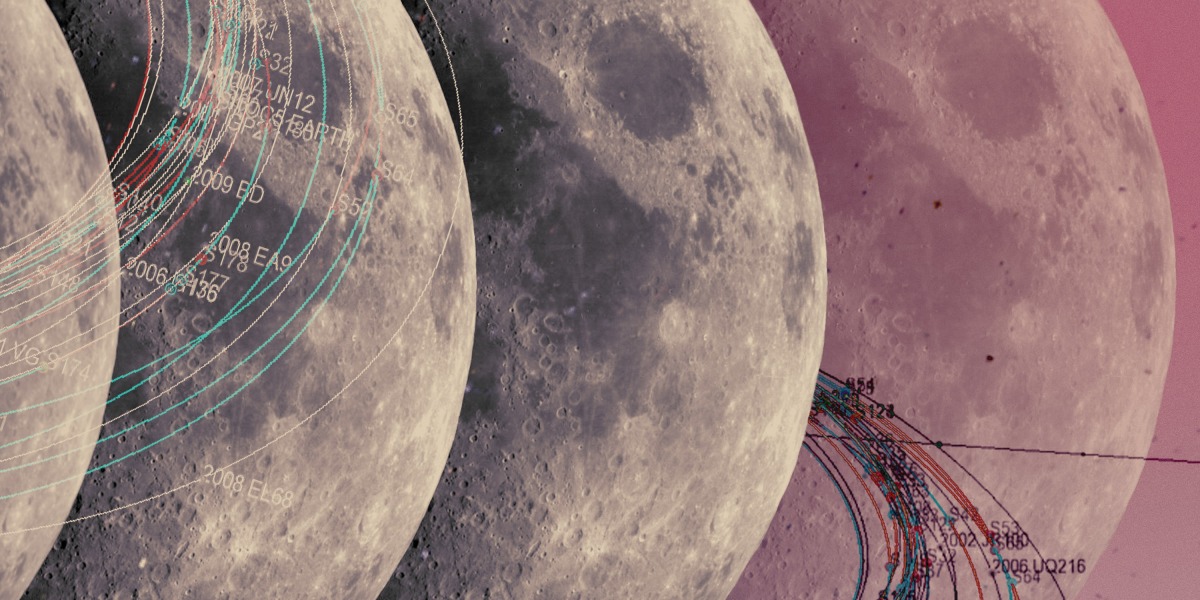The Download: space exploration, and why we’re hooked on hybrid cars
This is today’s edition of The Download, our weekday newsletter that provides a daily dose of what’s going on in the world of technology.
What’s next in space in 2023
We’re going back to the moon—again—in 2023. Multiple uncrewed landings are planned for the next 12 months, spurred on by a renewed effort in the US to return humans to the lunar surface later this decade. Both private space companies and national agencies are set to make the 240,000-mile trek to our celestial neighbor, where they will test landing capabilities, look for usable water ice, and more.
That’s not all 2023 has in store. We’re also likely to see significant strides made in private human spaceflight, including the first-ever commercial spacewalk, compelling missions heading out into—or back from—other solar system destinations, and new rockets set to take flight. Here’s what the next year has lined up for space. Read the full story.
—Jonathan O’Callaghan
Why EVs won’t replace hybrid cars anytime soon
The end could be coming soon for cars as we know them. If we’re going to limit global warming to 1.5 °C by 2050, as set out in the 2015 international Paris climate agreement, gas-powered vehicles will need to be largely off the road by then.
But while some carmakers including GM and Volvo have enthusiastically embraced an all-electric future, others are continuing to release hybrid vehicles. Toyota, the world’s largest automaker, plans to keep selling hydrogen-fuel-cell vehicles, declaring the US target of making EVs reach half of new car sales by 2030 a “tough ask.”
Although sales of electric vehicles have grown quickly over the past few years, the problem lies in easing US consumers’ fears around EV charging and range—the same concerns that have made them more receptive to plug-in hybrids. Read the full story.
—Casey Crownhart
The US Postal Service is finally getting EVs
The US Postal Service is finally going electric. The USPS announced this week that it plans to acquire at least 66,000 electric delivery vehicles between now and 2028, and all purchases after 2026 will be EVs. In total, the agency will invest nearly $10 billion to electrify its fleet.
But it’s been far from a smooth road, involving constant criticism, a strongly-worded letter from the Environmental Protection Agency, a presidential plea, and even a lawsuit from 16 states. Read the full story.
—Casey Crownhart
Casey’s story is from The Spark, her weekly newsletter giving you the inside track on all things climate and energy. Sign up to receive it in your inbox every Wednesday.
The must-reads
I’ve combed the internet to find you today’s most fun/important/scary/fascinating stories about technology.
1 Sam Bankman-Fried’s top associates have pleaded guilty to fraud
They’ve agreed to cooperate in his prosecution. (NYT $)
+ Here are some of the charges the US authorities have made against the pair. (Bloomberg $)
+ “Ethical crusader” Vikram Akula engaged in some similarly dodgy practices over a decade ago. (Wired $)
2 Elon Musk claims his cost-cutting has saved Twitter from bankruptcy
Others might argue it’s only hastened the company’s demise. (FT $)
+ The obvious choice for new Twitter CEO is among the people he’s laid off. (New Yorker $)
3 It’s been a record-breaking year for the climate
But major US legislation could pave the way to a brighter future. (New Yorker $)
+ Why biodiversity is a key measure of climate change’s effects. (Economist $)
+ 2023 is the year we’ll see if business’s climate commitments are genuine or greenwashing. (Wired $)
+ These three charts show who is most to blame for climate change. (MIT Technology Review)
4 Gene therapy has restored 10 children’s immune systems
The patients, who were born without working immune systems, might now be able to live normal lives. (New Scientist $)
+ This family raised millions to get experimental gene therapy for their children. (MIT Technology Review)
5 The race to share the James Webb Space Telescope’s first pictures
NASA scientists had a strict deadline to meet, and no room for error. (Inverse)
6 Sextortion scammers in India are ruining victims’ lives
This is a peek inside a growing, horrifying industry. (Rest of World)
7 Your days of sharing Netflix passwords are numbered
Netflix’s crackdown on account sharing is unlikely to be popular. (WSJ $)
+ Sharing passwords is against the law in the UK, its government says. (BBC)
8 How meme stocks stopped being funny
Turns out that investing based on vibes and jokes doesn’t always pay off. (Vox)
9 Grandmas on TikTok are charming younger generations
It’s striking a particular chord among those seeking homely, elder wisdom in the run up to Christmas. (The Atlantic $)
+ Why those “day in my life” videos are so addictive. (Vox)
10 We’re obsessed with trying to age more healthily
But promising drugs are at a risk of becoming overhyped. (Knowable Magazine)
+ How scientists want to make you young again. (MIT Technology Review)
Quote of the day
“He’s banjaxed the revenue by being a dick.”
—Bruce Daisley, Twitter’s former European vice-president, criticizes Elon Musk’s unorthodox management style and its effects on the company’s finances to inews.
The big story
Yann LeCun has a bold new vision for the future of AI
June 2022
Around a year and a half ago, Yann LeCun realized he had it wrong.
LeCun, who is chief scientist at Meta’s AI lab and a professor at New York University, is one of the most influential AI researchers in the world. He had been trying to give machines a basic grasp of how the world works—a kind of common sense—by training neural networks to predict what was going to happen next in video clips of everyday events. But guessing future frames of a video pixel by pixel was just too complex. He hit a wall.
Now, after months figuring out what was missing, he has a bold new vision for the next generation of AI, which he thinks will one day give machines the common sense they need to navigate the world. But his vision is far from comprehensive; indeed, it may raise more questions than it answers. Read the full story.
—Melissa Heikkilä & Will Douglas Heaven
We can still have nice things
A place for comfort, fun and distraction in these weird times. (Got any ideas? Drop me a line or tweet ’em at me.)
+ It takes real grit to don the cape of a D&D Dungeon Master.
+ Terry knows that napping with cats is one of life’s greatest pleasures.
+ How Gary Larson became an early meme pioneer.
+ I’ll never remember all these creative present wrapping tips.
+ This fascinating Tree of Life explorer gives you a sneak peek at the links between all known living things.




